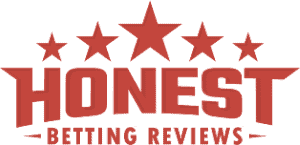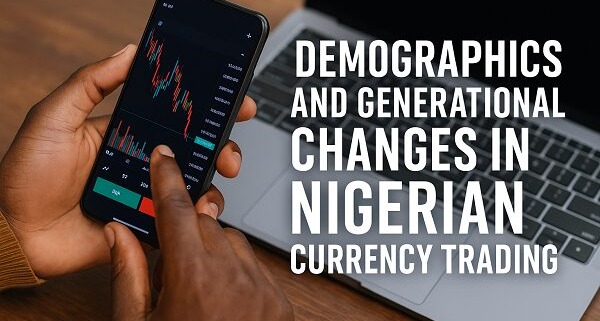Demographics and Generational Changes in Nigerian Currency Trading
Nigeria’s population makeup creates distinct patterns in forex participation unlike developed economies.
With 200+ million people and a median age around 18, the nation has among the world’s youngest populations.
This age structure influences technology use, risk appetite, and investment choices in currency markets.
Digital natives versus traditional investors create different approaches to forex education, platform usage, and market analysis.
Young Nigerians raised with mobile technology handle currency trading differently than older generations who learned finance through conventional banking.
Demographic analysis explains why Nigerian forex participation doesn’t match patterns in developed countries with aging populations.
Young Population and Technology Use
Nigerians under 30 make up roughly 70% of the population – a huge group of potential forex traders comfortable with smartphone financial services. This demographic adopts mobile trading apps and social media education faster than older groups.
Students and recent graduates often see forex as income opportunities while job hunting. High youth unemployment drives interest in alternative earning methods, though sometimes creating unrealistic profit expectations.
Social media heavily influences how young Nigerians discover forex. Instagram, TikTok, and YouTube creators promoting trading attract followers, but educational quality varies widely.
Gaming culture gives Nigerian youth familiarity with digital interfaces and risk-taking that carries over to forex platforms. However, gaming skills don’t automatically mean financial risk management knowledge.
Education and Market Entry
Nigeria has massive numbers of university graduates who grasp basic economics – providing a foundation for sophisticated forex participation.
Engineering and computer science graduates often prefer algorithmic trading and technical analysis. These graduates may build automated systems or pursue quantitative strategies.
Business and economics students get formal international finance education, though practical trading remains absent from most university programs.
English proficiency lets educated Nigerians access international forex resources unavailable in local languages, enabling participation in global trading communities.
Income Levels and Trading Capital
Nigeria’s wealth gap determines who trades forex and with what amounts. Wealthy Nigerians access international private banking while lower-income individuals use local banks.
Middle-class professionals – doctors, lawyers, engineers, government workers – have steady incomes supporting forex activities. These professionals might use salary-based loans for trading accounts or choose reliable international brokers like fbs.com for their currency trading needs.
Informal economy workers have irregular income affecting consistent trading. Small business owners may integrate forex with existing operations.
Diaspora remittances provide capital for some traders. Family abroad may fund relatives’ forex accounts in Nigeria.
Regional Demographic Differences
Lagos, Nigeria’s commercial hub, concentrates educated, wealthy residents accessing sophisticated financial services. Demographics favor forex participation there.
Abuja attracts government employees and international workers with stable incomes and higher education. Political status creates different patterns than commercial centers.
Northern Nigeria shows different demographics than southern regions – varying education, income, and technology adoption affecting forex participation.
Niger Delta oil regions have unique characteristics from energy employment and environmental challenges affecting economic opportunities.
Gender Participation Gaps
Nigerian women face cultural and economic barriers to financial markets varying by region and education. Urban educated women typically have more freedom for forex than rural women.
Women’s savings cooperatives sometimes explore forex as group investments, providing capital access while sharing knowledge and reducing individual risk.
Male-dominated trading communities may exclude women from informal education networks. This creates parallel communities and limits female trader development.
Professional women in banking, law, and academia often have necessary capital and knowledge but face time constraints from family duties.
Religious and Cultural Factors
Nigeria’s religious diversity creates different forex attitudes based on Christian and Islamic views.
Some religious groups see speculative trading as gambling while others view it as legitimate business.
Islamic finance principles influence Muslim traders’ approaches, particularly regarding interest transactions and leverage. These considerations may limit conventional forex participation.
Traditional values emphasizing community and family affect individual trading decisions. Traders may feel pressure to share profits or seek family approval.
Prosperity gospel in some Christian communities promotes wealth-building including forex, though emphasis on quick riches can create unrealistic expectations.
Professional Networks
Banking professionals form networks facilitating forex education and capital access. These professionals often have insider knowledge about market conditions and regulations.
Tech workers may approach forex through quantitative and algorithmic angles, developing automated systems or analytical tools.
Medical professionals and lawyers have high incomes supporting forex but may lack active trading time, preferring longer-term strategies.
Government employees may face foreign financial restrictions but have stable employment supporting conservative approaches.
Migration and Diaspora Effects
Nigerian diaspora maintains strong home connections, creating channels for forex knowledge transfer and capital flows.
International students often return with financial market knowledge shared locally. Returnees may introduce new trading concepts and strategies.
Brain drain affects potential trader demographics as educated young Nigerians emigrate for opportunities, reducing the local sophisticated trader pool.
Circular migration brings Nigerians back from international work with capital and knowledge supporting forex activities.
Technology Access Across Groups
Smartphone adoption varies significantly by age, with young Nigerians having much higher rates than older generations. This gap affects mobile platform access.
Internet costs represent larger income percentages for lower-income Nigerians, potentially limiting data-intensive trading.
Computer ownership remains low outside urban middle class, though shared facilities provide some demographic access.
Digital literacy varies significantly across groups, affecting sophisticated platform use and complex instrument understanding.
Future Population Trends
Nigeria’s population continues rapid growth, with projections showing it becoming the world’s third-largest by 2050. This creates an even larger potential trader pool.
Urbanization concentrates more Nigerians in cities where financial infrastructure and education support forex participation.
Educational expansion may increase the percentage with necessary financial knowledge, though employment opportunities must also grow.
Technology adoption will likely accelerate across all groups, potentially democratizing forex platform and educational access.
Nigeria’s unique population structure creates forex participation patterns reflecting youth demographics, educational achievements, income distribution, and cultural diversity.
These demographic influences provide context for market development and regulatory considerations.





Leave a Reply
Want to join the discussion?Feel free to contribute!